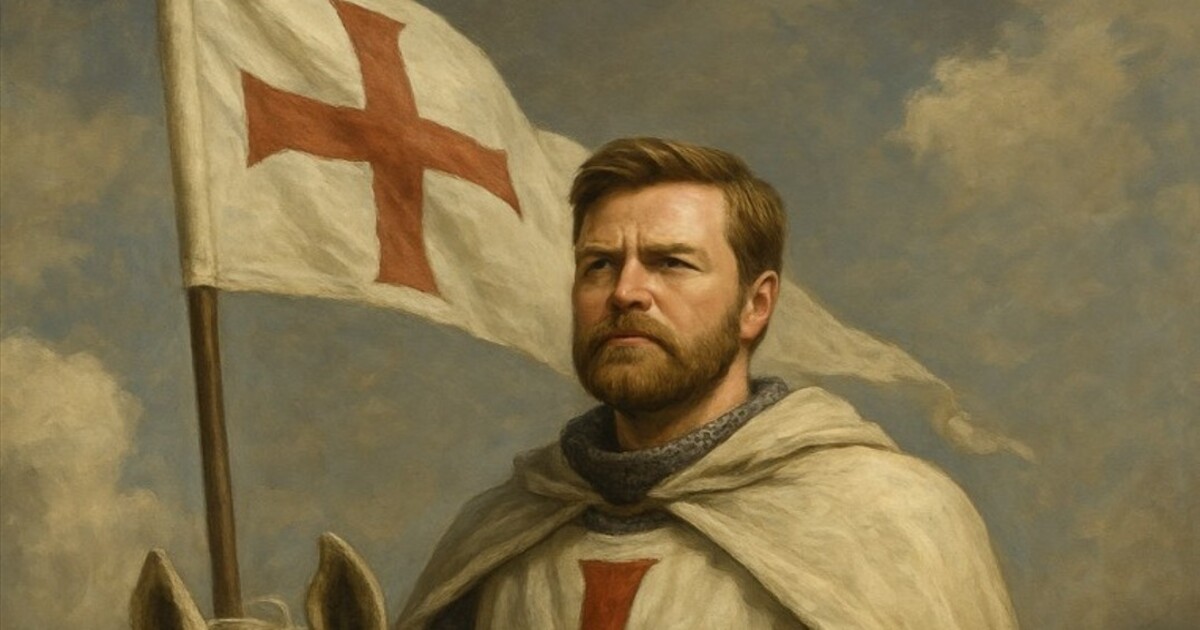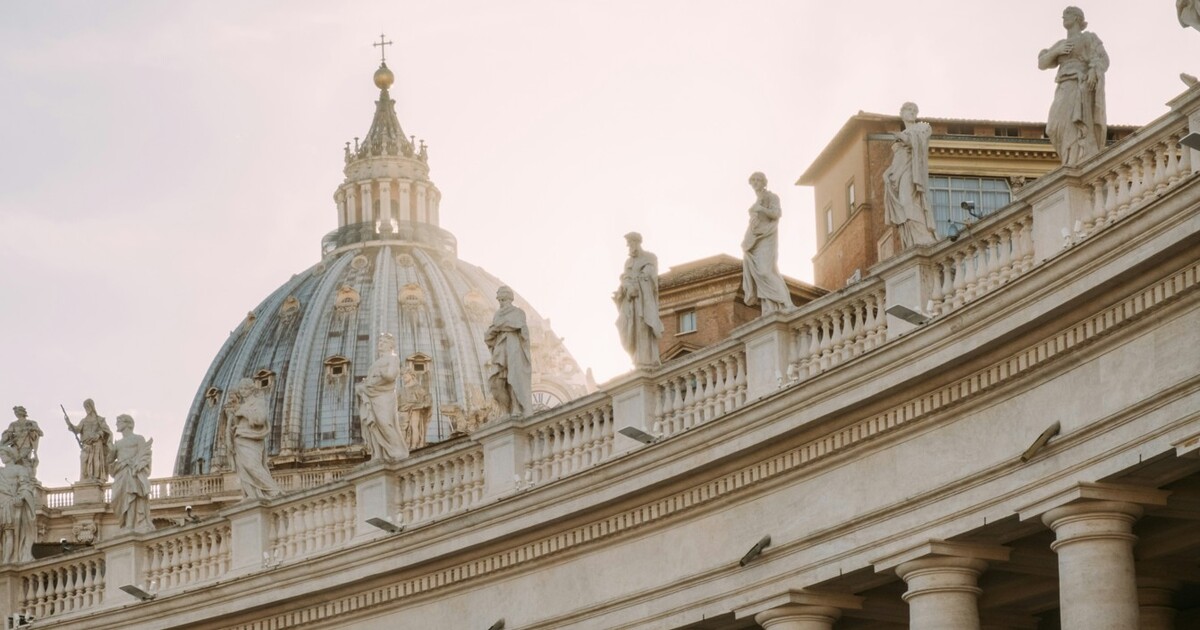The U.S. State Department’s Artful Misreading of Contemporary Europe
Does Europe really need a crusade from American shores to save it? On the dangers of using the history of Western intellectual thought to conflate questions of legal governance with political persecution.
May 31, 2025

A Strategic Intervention Paper (SIP) from the Global Ideas Center
You may quote from this text, provided you mention the name of the author and reference it as a new Strategic Intervention Paper (SIP) published by the Global Ideas Center in Berlin on The Globalist.
The U.S. State Department has long been respected for its venerable tradition of thoughtful and sound policy analysis — an intellectual legacy that traces back to George F. Kennan’s famous “Long Telegram” from Moscow in 1946, later published anonymously under X in Foreign Affairs in 1947.
History goes on
Apparently deeming himself in that tradition, Samuel D. Samson, Senior Advisor in the Bureau of Democracy, Human Rights and Labor (DRL), has published a paper on the U.S. State Department’s official Substack channel.
In it, he takes aim at Europe for it having “developed into a hotbed of digital censorship, mass migration, restrictions on religious freedom and numerous other assaults on democratic self-governance.”
Follow-up on Vance
Samson’s starting point is U.S. Vice President Vance’s address at this year’s Munich Security Conference, in which he warned: “What I worry about is the threat from within — the retreat of Europe from some of its most fundamental values, values shared with the United States of America.”
At the core, Samson criticizes Europe for undermining its intellectual and cultural legacy tracing back to Athens and Rome.
He particularly worries about today’s Europe for discrediting “the thought of Aristotle, Thomas Aquinas and other European heavyweights who recognized that all men possess natural rights that no government can arbitrate or deny.”
At the same time, he emphasizes that the United States remains indebted to Europe for its foundational impact on the Declaration of Independence.
Has Europe lost its way?
But, says Samson, Europe has lost its way. Despite enduring “two devastating world wars,” it has, in his view, “sought a grand transformation — a world that would transcend the divisiveness of nationality and creed to usher in an era of unprecedented peace.” To its own detriment, Europe is said to have abandoned the anchors of nationhood, culture and tradition.
Samson goes on to state that this attempt at “global liberalism promised what Francis Fukuyama famously called the ‘end of history,‘ the ultimate innovation in political life.”
It seems far-fetched to proclaim an ultimate innovation in any realm of human experience. Equally plausible — if not more so — is the notion that history does not end until the last human being has made their final case.
Until then, it is worth revisiting, from time to time, the central assertion regarding natural rights in the Declaration of Independence: “We hold these truths to be self-evident, that all men are created equal, that they are endowed by their Creator with certain unalienable Rights, that among these are Life, Liberty and the pursuit of Happiness.”
What do the “heavyweights” say?
To make his case, Samson cites Thomas Aquinas who, writing in the medieval era, famously asserted: “Good is to be done and pursued, and evil is to be avoided.”
For Aquinas, what is good reflects God’s eternal law, in which rational beings participate through reason. Crucially, reason is not confined to human subjectivity — it is grounded in something beyond man.
Those who live according to reason, he believed, may ultimately find themselves vindicated — if not on Earth, then on Judgment Day.
Hijacking Hobbes …
Hobbes, Locke and Kant — three other philosophical heavyweights — shift the focus from God to man. They begin not with eternal law, but with human nature and social necessity.
Hobbes grounds rights in the instinct for self-preservation. In his view, the need to escape the chaos of the state of nature — where life is “solitary, poor, nasty, brutish and short” — leads to the formation of government through strict, hierarchical contracts.
… and Locke
Locke, arguably the most influential thinker behind the Declaration of Independence, flips this idea. For him, government does not exist to restrain human brutishness but to protect certain basic and equal interests: Life, liberty and property (with the human body as the original form of property).
The Founding Fathers extended this faculty to Happiness. Locke’s vision, unlike Hobbes’s, is not rooted in fear but in the potential of human beings to live freely and justly under the rule of law.
Accordingly, the Constitution of the United States is designed to protect individual endowments. These rights are not granted by society. Rather, they are inherent. Their significance emerges when individuals come together to recognize and regulate them through the framework of government.
Enter Kant
Finally, Immanuel Kant reintroduces natural law with a mystical undertone that echoes Aquinas: “Act only according to that maxim whereby you can at the same time will that it should become a universal law.”
Both thinkers are rooted in reason. For both, morality is objective, and both aim to distinguish what is good from what is to be avoided. Moreover, each recognizes a good that transcends the individual — Aquinas in the Kingdom of God and Kant in the moral state.
This philosophical lineage — stretching from divine law to rational self-governance — forms the bedrock of modern democratic institutions, and it is precisely this depth of tradition that Samson’s critique fails to acknowledge.
States are different today
Most European states — with the exceptions of England and Switzerland — were reconstituted or newly formed after the Second World War. They reflect a blend of individual national traditions and the practical need to cooperate in the pursuit of peace and prosperity.
Historically, Europe has reinvented itself more frequently than any other continent. Its democratic tradition has served as a model for the world.
Example: Germany
For example, the Grundgesetz (Basic Law) of the Federal Republic of Germany, drafted in the aftermath of the Second World War, became influential well beyond Europe.
Its principles helped shape the constitutional frameworks of countries as diverse as South Africa, Japan, Taiwan, South Korea and several nations in South America.
As is typical in European history, constitutions are living documents — products of both historical development and present necessity. They represent an ongoing effort to channel Kant’s ideal of individual reason into a shared framework of governance.
In stark contrast to Europe, the U.S. tradition is to consider the constitution as more or less set in stone.
Samuel Samson’s analysis of Europe is misguided
With this in mind, Samuel Samson’s assertion that “Europe has developed into a hotbed of digital censorship, mass migration, restrictions on religious freedom and numerous other assaults on democratic self-governance” is, with all due respect, misguided.
He criticizes France for convicting Marine Le Pen of fraud, a ruling that currently prevents her from running for president in the next election.
He also cites the German Federal Office for the Protection of the Constitution’s 1,100-page dossier on the far-right Alternative für Deutschland (AfD), which could potentially lead to the party’s ban.
Thou shalt not bear false witness
Such actions are not unusual in the context of European democratic systems. In France, former President Nicolas Sarkozy was found guilty of corruption.
In Germany, during the 1970s, members of the German Communist Party were dismissed from public service positions. Today, a royalist group of so-called “Reichsbürger” — accused of plotting to overthrow the government — is on trial.
These examples do not indicate a breakdown of democratic governance. On the contrary, they show that France is enforcing legal accountability, and Germany is upholding constitutional principles concerning extremist political activity. In both cases, the rule of law is doing precisely what it is designed to do.
All over Orwell
Samson claims that “Orwellian content moderation” (which is newspeak for censorship) is evident not only in Europe’s Digital Services Act but also in countries like Poland and Romania.
He argues that “Christian nations” are unjustly labelled as authoritarian and accused of human rights abuses.
None of this would make much sense to Aquinas, Hobbes, Locke or Kant — and Machiavelli, who relished exposing pretensions and illusions of power, would likely have a field day with such assertions.
Is paranoia becoming policy?
Samson goes on to draw a parallel with the United States, stating: “Americans are familiar with these tactics. Indeed, a similar strategy of censorship, demonization and bureaucratic weaponization was utilized against President Trump and his supporters.”
Samson’s kind of rhetoric conflates questions of legal governance with political persecution and he ignores the complex philosophical and constitutional traditions that underpin European democracies.
In fact, Samson’s analysis of Europe is based on an idealized 18th-century understanding of political philosophy, combined with the thought-terminating cliché of “free speech.”
After all, a blanket demand for freedom of expression under all circumstances reflects an irresponsible, laissez-faire interpretation of democracy. A functioning republic must be capable of structured debate and rational discourse if it is to survive without undermining its democratic institutions.
Europeans wonder
Samson offers his own tale of ideology and circumstance. Unlike Kennan, he abandons careful analysis for alarmist ideology.
Like President Trump, Vice President Vance and Secretary of State Rubio, he sees American virtues under siege. Europe, presumably corrupted by unseen forces, has strayed from the path — and only the United States can see through the darkness. Or so the tale goes.
Fukuyama’s “End of History,” the supposed final innovation in political life, has been derailed, and the struggle must now resume — this time as a crusade undertaken from American shores.
Conclusion
Samson does not view events in Europe as part of a historical continuum. Instead, he sees them as the outcome of a deliberate will. The question is: Whose will?
Samson’s interpretation of Europe is abstract, antiquated and partisan. One can only hope that rational minds in the spirit of George Kennan re-emerge at the State Department — before paranoia becomes policy.
Takeaways
Samson conflates questions of legal governance with political persecution, and he ignores the complex philosophical and constitutional traditions that underpin European democracies.
Samson’s analysis of Europe is based on an idealized 18th-century understanding of political philosophy, combined with the thought-terminating cliché of “free speech.”
A blanket demand for freedom of expression under all circumstances reflects an irresponsible, laissez-faire interpretation of democracy. A functioning republic must be capable of structured debate and rational discourse if it is to survive without undermining its democratic institutions.
Like President Trump, Vice President Vance and Secretary of State Rubio, Samson sees American virtues under siege. Europe, presumably corrupted by unseen forces, has strayed from the path — and only the U.S. can see through the darkness. Or so the tale goes.
Samson does not view events in Europe as part of a historical continuum. Instead, he sees them as the outcome of a deliberate will. The question is: whose will?
Samson’s interpretation of European is abstract, antiquated and partisan. One can only hope that rational minds in the spirit of George Kennan re-emerge at the State Department — before paranoia becomes policy.
A Strategic Intervention Paper (SIP) from the Global Ideas Center
You may quote from this text, provided you mention the name of the author and reference it as a new Strategic Intervention Paper (SIP) published by the Global Ideas Center in Berlin on The Globalist.
Read previous

Global Politics
In Vatican We Trust?
May 30, 2025

